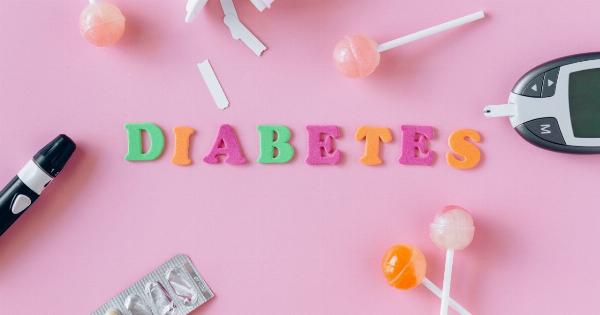Diabetes is a common disease in which the body is unable to produce or properly use insulin, a hormone that regulates glucose levels in the blood. There are several types of diabetes, including type 1, type 2, and gestational diabetes.
While there is no known cure for diabetes, there are several lifestyle changes and treatments that can help manage the disease and prevent complications.
One treatment option that has gained popularity in recent years is the very low-calorie diet (VLCD). This type of diet involves consuming fewer than 800 calories per day, typically in the form of meal replacement shakes or bars.
While this type of diet is often used for weight loss, some studies have suggested that it may also have benefits for people with diabetes. In this article, we will explore the potential benefits of VLCDs for diabetes.
The Science Behind VLCDs
VLCDs have been shown to be effective for weight loss in multiple studies.
One study published in the International Journal of Obesity found that a VLCD led to significantly more weight loss and greater improvements in blood sugar levels than a standard low-calorie diet in obese individuals with type 2 diabetes. Another study published in Diabetes Care showed that a VLCD improved insulin sensitivity and glucose control in overweight individuals with type 2 diabetes.
But how does a VLCD lead to these improvements? One theory is that VLCDs reduce inflammation in the body, which is known to play a role in the development of insulin resistance and type 2 diabetes.
By reducing inflammation and promoting weight loss, VLCDs may help improve insulin sensitivity and glucose control.
The Potential Benefits of VLCDs for Diabetes
Improved Blood Sugar Control
Several studies have suggested that VLCDs can lead to improved blood sugar control in individuals with type 2 diabetes.
In a study published in The Lancet, individuals with type 2 diabetes who followed a VLCD for 8 weeks experienced significant reductions in fasting blood glucose levels compared to individuals who followed a standard low-calorie diet. Another study published in Diabetes Care showed that a VLCD led to significant reductions in HbA1c, a marker of long-term blood sugar control, in obese individuals with type 2 diabetes.
Weight Loss
VLCDs are often used as a weight loss tool, and weight loss is known to have numerous benefits for individuals with diabetes.
In particular, weight loss can improve insulin sensitivity, lower blood pressure, and reduce the risk of complications such as cardiovascular disease and kidney disease.
Reduced Medication Use
VLCDs may also lead to reduced medication use in individuals with diabetes.
In a study published in Diabetes Care, obese individuals with type 2 diabetes who followed a VLCD for 8 weeks were able to significantly reduce their medication use compared to individuals who followed a standard low-calorie diet. This reduction in medication use could have significant cost savings for individuals with diabetes.
Improved Quality of Life
Finally, VLCDs may also lead to an improved quality of life for individuals with diabetes.
In a study published in the Journal of Diabetes and Its Complications, individuals with type 2 diabetes who followed a VLCD for 3 months experienced significant improvements in quality of life compared to individuals who followed a standard low-calorie diet. These improvements were likely due to the significant weight loss and improvements in blood sugar control that were achieved.
Risks of VLCDs for Diabetes
While VLCDs may have potential benefits for individuals with diabetes, they also come with risks. VLCDs can lead to nutrient deficiencies, particularly if they are followed for an extended period of time.
VLCDs can also lead to rapid weight loss, which can be dangerous for individuals with certain health conditions.
It is important for individuals with diabetes to speak with their healthcare provider before starting a VLCD. Healthcare providers can help individuals determine if a VLCD is appropriate for them and can monitor for any potential complications.
Conclusion
VLCDs have shown potential benefits for individuals with diabetes, including improved blood sugar control, weight loss, reduced medication use, and an improved quality of life. However, VLCDs also come with risks and should be undertaken with caution.
Individuals with diabetes should speak with their healthcare provider before starting a VLCD to determine if it is appropriate for them and to monitor for any potential complications.


























